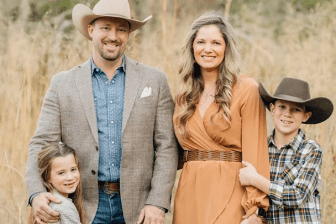Watch above: Terry Trafford’s father talks about OHL’s new mental health program

TORONTO – The Ontario Hockey League announced plans for a league-wide mental health program Monday in the wake of the suicide of Terry Trafford, a 20-year-old player with the Saginaw Spirit.
“We hope that by providing all players and team support staff with education on mental health, we will be able to help identify those who are struggling and furthermore help reduce the stigmas attached to mental health issues. Talk Today will be rolled out immediately to all OHL teams.” said David Branch, Commissioner of the Ontario Hockey League.
Trafford killed himself after being cut from the Saginaw Spirit in March. It was nine days after he disappeared that the young man was found in his truck in a Saginaw parking lot.
Former hockey player Corey Bricknell is applauding the new program. He looks back on his seven year playing career fondly despite those years being some of the darkest of his life.
When he played in the 90’s, Bricknell was a brawler, one of the tough guys in an already tough sport.
What no one saw was what was happening beneath all that.
“I tried to commit suicide the summer after I played my first year junior,” said Bricknell.
Watch: The OHL is tackling mental issues among players with a brand new initiative.
Even after being talked out of jumping from a bridge by his cousin and a friend, Bricknell struggled to accept he was suffering from depression.
He was worried that he’d be seen as “weak” in the rough world of hockey.
“I still didn’t feel like I needed the help, I felt embarrassed about it so I kept it quiet. It is lonely, you feel you are alone and that is one of the signs.” he said.
The new program will teach players and coaches how to recognize the symptoms of depression, which include acting out of character, withdrawal, and changes in diet or sleep patterns.
And they’ll learn how they can help.
“You look them in the eye and ask them if they are struggling, or worse if they are contemplating suicide. It allows that young person to speak in a way more bluntly than otherwise,” said Camille Quenneville, CEO of the Canadian Mental Health Association.
Every team will also have a designated mental health coach.



Comments